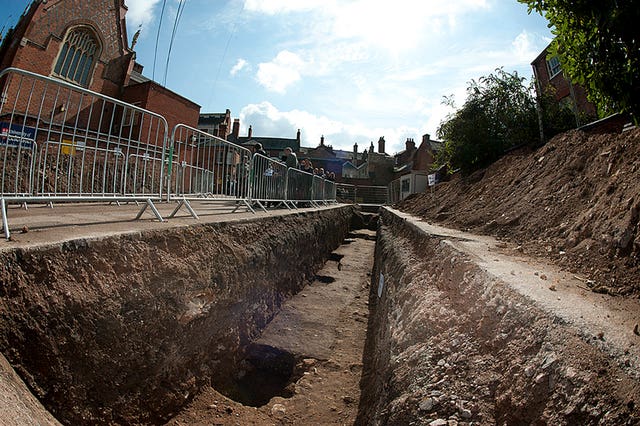A voice for King Richard III has been created using state-of-the-art technology, giving him a Yorkshire accent.
A digital avatar of the medieval king went on display in front of history buffs at York Theatre Royal on Sunday.
Richard III was King of England from 1483 until his death in 1485 at the age of 32.
His were discovered in 2012 under a car park in Leicester by Philippa Langley through her Looking For Richard Project. They were identified using a range of scientific disciplines including DNA analysis.
For voice teacher and vocal coach Yvonne Morley-Chisholm, the voice project came about more than 10 years ago as after-dinner entertainment to compare Shakespeare’s Richard III with what is known of the real man.
It developed quickly into a research project with a unique focus – to explore the possibility of recreating a voice for the long-dead King.
A team at Face Lab at Liverpool John Moores University created an avatar based on a reconstruction of Richard III’s head, led by cranio-facial identification expert Professor Caroline Wilkinson.

Experts from various fields helped put the pieces of the puzzle together, including speech and language therapy, dentistry, forensic psychology and archaeology.
Richard III was killed at the Battle of Bosworth on August 22 1485. He was the last King of the House of York and the last of the Plantagenet dynasty.
His defeat at Bosworth was the penultimate battle in the Wars of the Roses and ushered in the Tudor dynasty.
Ms Langley’s search for the King’s grave was the subject of the award-winning TV documentary: Richard III: The King In The Car Park.




Why are you making commenting on The Herald only available to subscribers?
It should have been a safe space for informed debate, somewhere for readers to discuss issues around the biggest stories of the day, but all too often the below the line comments on most websites have become bogged down by off-topic discussions and abuse.
heraldscotland.com is tackling this problem by allowing only subscribers to comment.
We are doing this to improve the experience for our loyal readers and we believe it will reduce the ability of trolls and troublemakers, who occasionally find their way onto our site, to abuse our journalists and readers. We also hope it will help the comments section fulfil its promise as a part of Scotland's conversation with itself.
We are lucky at The Herald. We are read by an informed, educated readership who can add their knowledge and insights to our stories.
That is invaluable.
We are making the subscriber-only change to support our valued readers, who tell us they don't want the site cluttered up with irrelevant comments, untruths and abuse.
In the past, the journalist’s job was to collect and distribute information to the audience. Technology means that readers can shape a discussion. We look forward to hearing from you on heraldscotland.com
Comments & Moderation
Readers’ comments: You are personally liable for the content of any comments you upload to this website, so please act responsibly. We do not pre-moderate or monitor readers’ comments appearing on our websites, but we do post-moderate in response to complaints we receive or otherwise when a potential problem comes to our attention. You can make a complaint by using the ‘report this post’ link . We may then apply our discretion under the user terms to amend or delete comments.
Post moderation is undertaken full-time 9am-6pm on weekdays, and on a part-time basis outwith those hours.
Read the rules hereLast Updated:
Report this comment Cancel